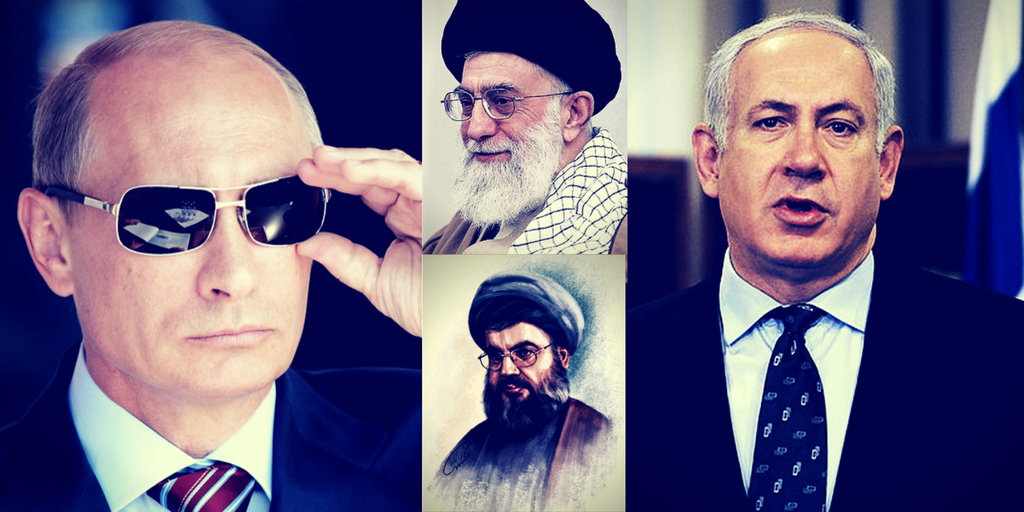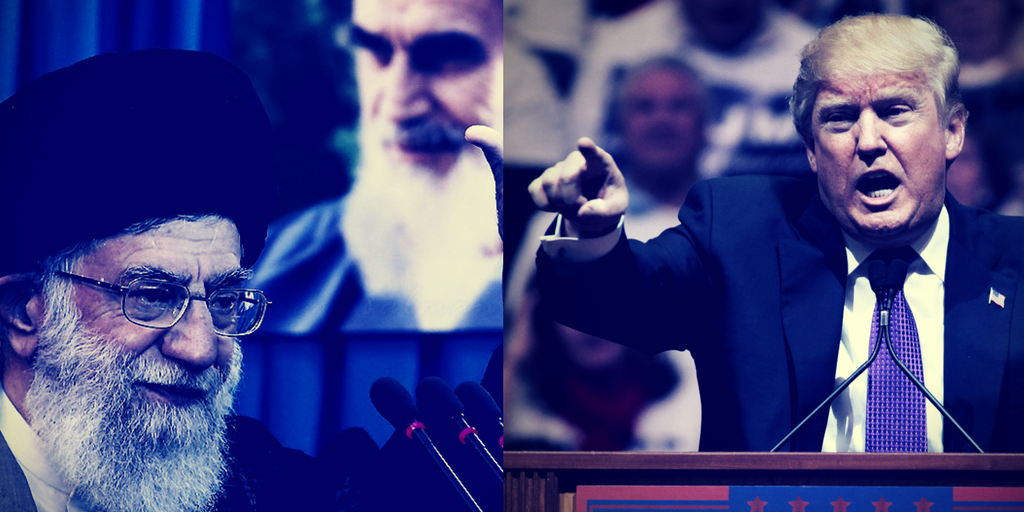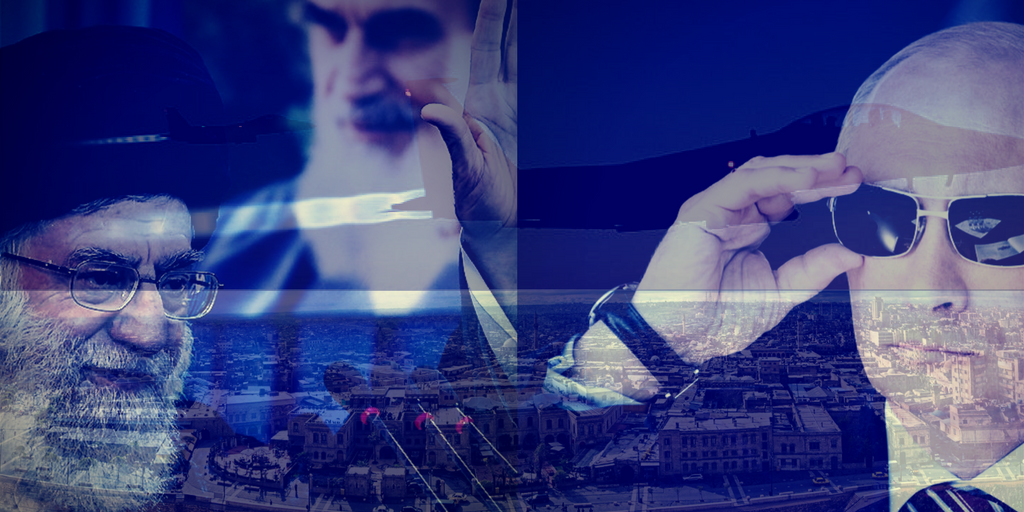Moscow is not interfering with Israeli attacks on Hezbollah in Syria.
One of the most interesting stories, if not the most puzzling, is the close understanding and amity between Jerusalem and Moscow. While the Russian Air Force pounds the civilian population in Aleppo on behalf of the Syrian dictator Bashar Assad and his Iranian allies, Russia is coordinating the moves of its Air Force in Syria with Israel’s Air Force. Moscow is not interfering with Israeli attacks on Hezbollah convoys carrying lethal arms shipped to Syria by Iran, as the Shiite terrorist group is attempting to move these arms to Lebanon. Walla, a Hebrew language Israeli news outlet wrote on December 1, 2016 that “Russia’s silence following reports that the Israeli Air Force bombed an arms depot and a Hezbollah bound weapons convoy in Syria on Wednesday might signal ‘tacit consent’ to such action as long as they do not harm Kremlin’s interests.” Israel, on its part, is staying out of the civil war in Syria, but provides medical assistance to wounded opposition fighters combatting the Assad regime.
The Obama administration failure to act on its announced “Red Line,” (on Assad’s use of chemical warfare on fellow Syrians) and subsequently leaving the Syrian arena in Russian hands, has damaged U.S. credibility in the region. It has also encouraged Russia to take aggressive action against opposition forces supported by the U.S., and Syrian civilians.
Gen. Igor Konashenkov, spokesman for the Russian defense ministry said according to Russian RT-TV(11/29/2016) that, “Over the past few days, well planned and careful action by the Syrian troops resulted in a radical breakthrough. Half of the territory previously held by the militants in eastern Aleppo has been de facto liberated.” Konashenkov’s cynical statement referring to the Assad regime’s brutal actions in attacking (along with Russian aerial support) civilians in homes, hospitals and schools with barrel-bombs to be “well planned and careful action,” sharply contrasts with Israeli hospitals opening their doors to perform truly humanitarian work by treating wounded Syrian civilians and fighters.
Konashenkov also stressed that “over 80,000 Syrians, including tens of thousands of children, have been freed. Many of them, at long last were able to get water, food and medical assistance at humanitarian centers deployed by Russia. Those Syrians served as human shields in Aleppo for terrorists of all flavors.” That statement is turning the truth upside down. After relentless bombing by Russian and Syrian jets that have killed thousands (mostly Sunni civilians), these Syrians do not consider Russia’s role as “humanitarian.”
Putin’s Russia has saved Bashar Assad’s skin, and has done so for purely Russian interests, including air and naval bases in the Latakia Governorate of northwestern Syria, bordering the coveted Mediterranean Sea. Putin’s Russia has planned to sell, and according to Russian and Iranian sources, already delivered to Iran the highly sophisticated S-300 air defense system. Israel’s Prime Minister Benjamin Netanyahu, in his many meetings with Russia’s President, Vladimir Putin, implored the latter not to sell such weapons to the Islamic Republic of Iran. Thomas Shannon, U.S. Under-Secretary of State for Political Affairs, said that, “We have made it very clear to the Russians that we consider this (the sale of the S-300) to be a bad move, that we consider it to be destabilizing and not in keeping with what we’ve been trying to accomplish, not only through the JCPOA (Joint Comprehensive Plan of Action, commonly known as the Iran nuclear deal) , but broadly in terms of our engagement with Iran.”
Putin’s Russia alliance with the Syrian dictator Bashar Assad and the repressive Islamic Republic of Iran notwithstanding, to watch the warm reception Benjamin Netanyahu received in the Kremlin by his host Vladimir Putin is most certainly eyebrow raising, if not an amazing phenomenon. Considering decades of Soviet support for Israel’s enemies, and oppression of its Jews, Putin’s Russia has a rather warm spot for the remaining Jews in Russia, and satisfaction with the Russian cultural enclave in Israel. In fact, outside the former Soviet Union, Israel has probably the largest Russian speaking population. Putin felt at home when he visited Israel, first in April, 2005, as he met for discussions with Prime Minister Ariel Sharon. In June, 2012, Putin was in Israel again on an official visit. This time, he unveiled the national monument honoring the memory of Jewish soldiers in the Red Army who fought the Nazis in WWII. He also met with PM Netanyahu and President Shimon Peres. Reuter’s story by Josh Cohen on January 14, 2016 was headlined, “Vladimir Putin is the closest thing to a friendIsrael has ever had in Moscow.” And yet, Putin’s Russia has continued to vote with the Palestinians at the UN, has helped Iran with its nuclear program, and sold missiles to both Iran and Syria.
Stalin, the Soviet Union murderous tyrant was one of the first to recognize the Jewish state in 1948, and sold arms through Czechoslovakia to the nascent Jewish nation. At the same time, Stalin ordered the murder of Jewish anti-fascist leaders in Russia, and made anti-Semitism a state policy. Following the Six-Day war in 1967, the Soviet Union severed diplomatic relations with Israel, and during the War of Attrition (1969-1970), Soviet pilots flew missions for the Egyptians. Israeli pilots engaged and downed a number of Soviet pilots (Israel never publicized it in order not to inflame the Russians). During the Yom Kippur War of 1973, the Soviets were heavily involved with the Arab war machine against Israel, providing Egypt and Syria with huge quantities of arms, including lethal missiles.
The last leader of the Soviet Union, Mikhail Gorbachev, renewed diplomatic ties with Israel in 1991. Putin’s personal admiration for Israel elevated its profile in Russian foreign policy. The Arab market for Russian arms is a lucrative one, and it is therefore pragmatism that motivates Putin along with personal sympathy for Israel and Jews. Israel’s experience with Islamist terrorism made it sympathetic to Russia in its 1999 war in Chechnya, which dealt with combatting Islamist terror. The Jerusalem Post quoted Putin telling Netanyahu that Israel and Russia are “unconditional allies” in the war against terror. In fact, Putin was one of the few world leaders to support Israel’s Operation Protective Edge against Hamas in 2014. Putin is quoted as saying, “I support Israel’sbattle that is intended to keep its citizens protected.”
In 2008, Israel made significant gestures towards Putin’s Russia. It transferred to Russia parts of the Russian Orthodox compound (Sergei courtyard) in Jerusalem. In the same year, Israel halted military supplies to Georgia (at war with Russia at the time) for a Russian promise not to sell the S-300 air-defense system to Iran. Israel has also been neutral in the conflict between Russia and the Ukraine. It did not condone Russian aggression there, but seeks to avoid alienating Moscow. For the same reason, Israel abstained on a UN vote that condemned Russia for its annexation of Crimea.
The Obama administration’s open dislike for Netanyahu’s government, has forced Israel to look elsewhere for support. Avigdor Lieberman, (a native of Moldavia, part of the former Soviet Union) Israel’s former Foreign Minister and current Defense Minister greatly enhanced Russian-Israeli relations. The incoming Trump administration, seeking to reset relations with Russia, might find Israel to be a trusted go-between in dealing with Putin. This might aid the incoming U.S. administration, while at the same time further strengthen Israeli-Russian relations.
Originally Published on FrontpageMag.
[huge_it_share]






